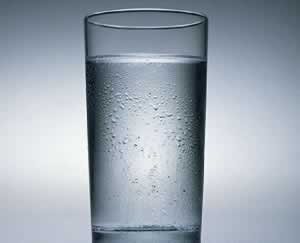Gluten Free
What does following a gluten-free diet mean? That you're embarking on an easy diet with a wide range of health-promoting effects. Instead of dwelling on what you’re giving up, consider that you’re going to enjoy a whole new world of delicious food options to meet your special dietary needs. You’ll be eating seasonally, choosing more fresh fruits and vegetables, focusing on meats, seafood, poultry, legumes, lentils, corn, and rice, and discovering fascinating ancient grains such as quinoa, amaranth, and millet. You’ll be able to eat potatoes, eggs, most cheeses, even chocolate (!)—and enjoy them without guilt because you’ll be taking good care of your body. In fact, you’ll probably end up eating—and feeling—better than ever!
Visit this page for more information about living Gluten Free
---
We carry a large variety of gluten free items, the brands listed below represent just some of the offerings we carry















More Diets
- By Deborah Kotz
Bottled Water: What's the Difference?
Cruising down the beverage aisle, you’ll find a wide variety of bottled water brands in varying shapes and sizes. Some neatly fit into your car’s cup holder. Others have pull-up tops that won’t get lost on the soccer field. The latest wave to hit the shelves is “enhanced” water, which can include flavors, vitamins, minerals, and electrolytes.
Many people go for bottled over tap water because they prefer its taste and clarity
What’s the difference between types of bottled water?
The US Food and Drug Administration (FDA) has established a “Standard of Identity” to define different types of bottled water, based on the products’ specific characteristics:
- Spring water—This comes from an underground formation from which water flows naturally to the surface of the earth, and must be collected only at the spring or through a borehole that taps the source.
- Purified drinking water—This has been processed to remove chlorine and a majority of dissolved solids such as magnesium.
- Naturally sparkling water—This is naturally carbonated from a spring or artesian well.
- Artesian water or artesian well water—It comes from a well that taps a confined aquifer (a water-bearing underground layer of rock or sand).
- Mineral water—Typically spring water, it contains no less than 250 parts per million of total dissolved solids like calcium, magnesium, sodium, potassium, silica, and bicarbonates. No minerals can be added to this product.
Which tastes better?
Many people go for bottled over tap water because they prefer its taste and clarity. Tap water contains chlorine to kill bacteria and other micro-organisms, which can make it taste like “pool water.” Many bottled water manufacturers use ozone (supercharged oxygen) or ultraviolet light to disinfect the water. Unlike chlorine, neither of these alters the taste.
Is bottled water safer?
Experts can’t agree on whether bottled water is safer than tap, but both must meet government safety standards. Tap water is regulated by the Environmental Protection Agency (EPA), and bottled water is regulated by the FDA as a food product. In fact, bottled water must meet the same strict standards set by the EPA for public drinking water systems. What’s more, the FDA requires that bottled water be packaged in a sanitary environment in safety-sealed containers.
What about flavored water?
These fruity beverages might taste good, but technically they’re not bottled water. The FDA emphasizes that water with certain ingredients or additives may be classified as a soft drink or dietary supplement. For example, soda water, seltzer, and tonic are not bottled water. The same goes for carbonated water beverages like “enhanced water,” which can contain more than 80 calories per serving.












